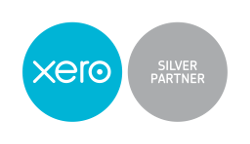Payroll taxes are an essential part of America’s system of taxation as they keep social insurance programmes operational and funded. After income taxes, they represent the second-largest source of federal revenues.
Payroll taxes for your business can seem quite complex and you need to have an understanding of the system in order to comply with federal law. If your business issues paychecks you must withhold various federal, state, and local taxes for the government, and understanding distinctions between payroll taxes is key to good management.
How are payroll taxes different from personal income taxes? Read on to find out more…
Payroll taxes vs income taxes
You need to know the difference between these two groups to understand the meaning of a tax deferral, to know what tax to withhold from fringe benefits (for example educational assistance) and to learn how the government uses these funds. Filling out your Internal Revenue Service forms will also be simplified.
Payroll tax
Also referred to as FICA ( Federal Insurance Contributions Act) payroll taxes are used to fund Social Security and Medicare. The difference in these taxes from most other feral taxes is that both the employer and the employee pay the same amounts. Payroll taxes are regressive meaning that the more you earn the lower the percentage of your salary will end up as payroll tax.
Payroll taxes specifically go to Social Security and Medicare funds which cover retirement, disability, and survivors of deceased workers benefits. Payroll taxes are the primary source of funding for the Old-Age and Survivors Insurance and Disability Insurance programmes, accounting for 88% of cash flow into these trust funds.
The percentage of Social Security tax withheld is 6.2. with a salary base limit which is typically referred to as the Social security tax cap. Since 1975 the taxable maximum has generally been increased each year based on an index of national average wages. Every year approximately 6% of the working population earn more than the taxable maximum.
The revenue from payroll taxes helps fund the Hospital Insurance programme which is used to pay for hospital stays and a few forms of home healthcare such as hospice care. The programme also includes Medicare Advantage plans and prescription drug coverage.
Medicare tax is 1.45% without any salary base limit but with an additional tax after the threshold is reached. Basically, this means that the business must withhold 2.35% for Medicare including any additional tax, but only contribute 1.45%.
The combined total rate that both employer and employee pay in FICA taxes is 15.3% of gross wages. So, this is the amount required to be withheld from every paycheck and paid to the government by the required deadline.
Income tax
Income taxes are taken from an employees salary with rules and regulations set by the Internal Revenue Service. Every employee will contribute a different amount depending on their salary and personal circumstances. Income taxes fund public services such as transportation, education, defence, or any other purpose decided by local, state, or federal government.
Employees are also responsible for paying income taxes on sources of income outside their primary employment like profits from the sale of stocks or property, dividends, and bank interest.
Federal income tax has two tax withholding payment methods – percentage and wage bracket. When you hire an employee they will fill out Form W-4, the Employees Withholding Certificate that enables you to use the information needed to calculate the federal income tax deduction.
State income tax works in a similar way with a State Income Tax Withholding form being completed by your employee to enable you to calculate the rate of tax to be deducted. This will either be in a flat or progressive rate assigned by your local authorities.
Filing payroll and income taxes
It’s vital that your small business pays taxes on time as delays can lead to financial penalties and fines. The following guidelines will ensure you have the resources in your administration department to manage business expenses:
Create payslips for each employee
This will provide in-depth information on gross wages, personal income tax and payroll taxes withheld and the net amount paid. Having all these detailed records makes it easier for payslip deductions to be explained and makes filing a personal tax return and any other paperwork much more straightforward.
Keep a calendar for tax payment dates
Follow federal and state regulations to ensure that forms are filled in by the deadline and tax payments are deposited on time. Bear in mind if you miss a payment there will be financial consequences.
Rely on the professionals
You may decide to manage your payroll yourself, but an expert tax accountant can really help with setting up your records and calculating withholding for your employees. After the initial discussions, you can obtain the appropriate accounting software to keep organised with calculating how much to withhold from an employees wages for taxes and exactly when to withhold it.
Need payroll services in London?
Payroll services for small businesses and startups are catered for by specialist accountants who will handle your payroll in full compliance with HMRC regulations. Payroll outsourcing services will ensure that your payroll is completed accurately and on time so that deadlines are never missed.
Outsourcing will provide you with a clear fixed cost that makes your budget simple to manage, and give you flexible options that grow with your business. Your professional tax expert will complete tasks quickly and effectively with affordable payroll solutions and you’ll be able to operate your payroll system with ease and keep on top of all of your legal financial obligations.



0 Comments